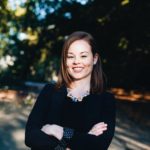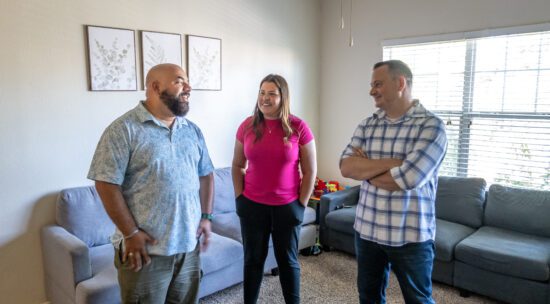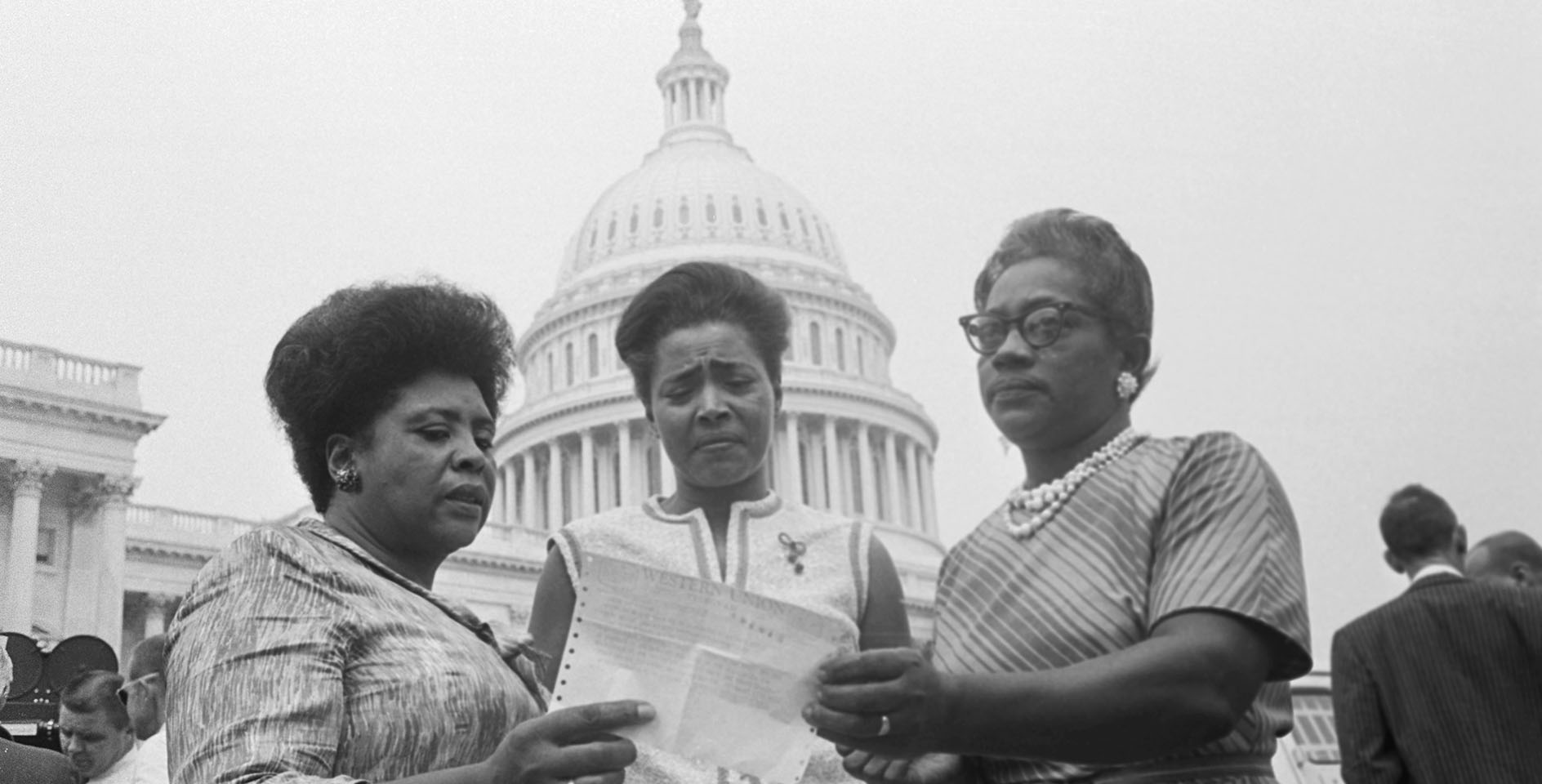Born and raised in the “birthplace of Rock ‘N Roll,” Donna Gaines returned 25 years later armed with a background in education and a heart for the county that claims one of the highest rates of childhood poverty.
Gaines is a women’s ministry leader and wife to Southern Baptist Convention president and Bellevue Baptist Church pastor Steve Gaines, where they minister together in Cordova, Tenn. Although she spends much of her time traveling with her husband, discipling women, and spending time with her 10—soon to be 11—grandchildren, Gaines is also the founder and president of a literacy program that targets at-risk children.
Five years ago, Gaines launched ARISE2Read, a faith-based literacy program for second graders in the greater Memphis and Jackson areas. Since starting the program, ARISE2Read has mobilized 822 volunteers who tutor 853 students in 19 schools—including in Gaines’s very own Georgian Hills Elementary, where she attended growing up.
“Our goal is to tutor every second-grade child,” Gaines said in an interview. Their goal for the upcoming school year is an ambitious 30 area schools.
Several studies, including a popularly cited study by the Annie E. Casey Foundation in 2011, correlate high school graduation rates with reading on grade level by the end of third grade. The Casey study showed that children living in poverty who are reading proficiently by the end of third grade have an 89 percent graduation rate, since in fourth grade students are no longer learning to read, they are reading to learn.
“If you’re not on grade level by then, that impacts everything,” Gaines said.
The program, which integrates with an already-established initiative called Team Read, has seen incredible success, with a 142 percent increase in the number of second graders who are scoring on grade level.
In their pilot school, Treadwell Elementary, the program also worked with the lowest functioning first graders in addition to all second graders. While only about a third of overall Shelby County third grade students read at grade level, Treadwell bragged a 78 percent of students reading at grade level, Gaines said.
Behind every great man
Many in Southern Baptist or evangelical circles are familiar with Pastor Steve Gaines, her husband. What many might not know is that Donna Gaines is the chairman of the board for the Pastors Wives’ Session of the Southern Baptist Convention Pastors’ Conference. She’s also the author of four books, and blogs regularly.
With a background in education—Gaines studied at Union University in Jackson for her undergraduate degree and completed her Master’s of Education at Texas Woman’s University—Gaines has long been aware of her love for education and underprivileged children. Early in her career, before going into full-time ministry, Gaines worked as an Educational Diagnostician in Texas.
“From when I was in college, I thought I would do something for needy children,” Gaines said. “God can plant a dream in you in college and bring it to fruition. It’s so fulfilling. Everything God has put into my life at this point has prepared me for this.”
With that special awareness, Gaines immediately recognized the need for an organization that actively linked local churches with their schools, using literacy as the most efficient tool for improving the wellbeing of their neighbors.
About a decade ago, Bellevue Baptist Church’s inner city mission projects sparked a regular tutoring program at one of the less privileged area schools. Around the same time, the Shelby and Memphis school systems merged, Gaines said.
“There was a lot of fear in the county of what that would mean,” she said. “And I had a moment in my quiet time where I felt God telling me, ‘this is your city, these are your children. What are you going to do about it?’”
So she called up the Memphis school system about using her resources – her connections with local churches – and aiding with a volunteer program, an idea which collided with the school’s goals to integrate the faith-based community.
Not just any literacy program
Program leaders at ARISE2Read are not only interested in the intellectual and mental well-being of the students they tutor. The name of the organization stands for “A Renewal In Student Education and Evangelism,” which separates it from other literacy programs by linking faith-based organizations (mostly evangelical area churches) with local schools.
Volunteers are not allowed to explicitly evangelize during their weekly one-on-one tutoring sessions, but more spiritually-oriented clubs afterward are optional. Each volunteer sees two students for 30 minutes each during the week, for a total of one hour of volunteering.
“You may not be able to say the name of Christ, but you are Christ [in your actions],” Gaines says to her volunteers, encouraging them to use private prayer over the student or the school in their ministry. The program is split unapologetically into two arms – a spiritual ministry arm and a community-driven one.
“It’s important that these children grow academically, but it’s equally important to show up every week and grow in that relationship. They’re excited, in their corner, literally speaking words of life. We’re seeing these children blossom,” Gaines said.
They haven’t promoted their program at all, but it’s spread rapidly via word-of-mouth, due to its simplicity (tutoring in elementary-level reading), low-level of commitment (one hour a week) and attractiveness to the school system (helping an already existing program that requires little maintenance). Recently, several local businesses adopted a school, in addition to the 20 local churches that are on board in Memphis alone.
One church body led a family to Christ through their involvement in the school. Another has helped a single mother of seven children over the past year in ways that range from getting clothes at Christmas to finding them solid housing.
“We helped her move in on December 22 with a wreath, fully furnished apartment and a Christmas Tree,” Gaines said. “Once people get involved, these children are no longer numbers.”
For Gaines, it’s more than just the academic statistics.
“I can’t not do this. I think it’s a justice issue. How can we not do anything?” she said. “Look at the resources we have! We can’t ignore that.”
Helping, not hurting
And volunteers are not ignoring those around them. The program doesn’t just serve the students, though they do that well and in a way that looks out for the whole student. It also is aware of the teachers and staff at the schools where they volunteer.
“We’ve seen teachers’ morale increase,” Gaines said. Remembering the struggles of inner-city teachers is one of the many aspects of the program.
Shelby County School System Director of Family Partnerships and School Support Cynthia Alexander Mitchell started working with Gaines and ARISE2Read three years ago. Even with 100,000 students in the school system, and many different organizations offering to contribute help, Alexander Mitchell values the partnership of Gaines’s program, she said.
“When I was first getting into the role, I had several groups wanting to help, but ARISE2Read had the purest motive,” she said. “They stepped in and just helped support us. People often help if it benefits them. They just helped.”
While faith-based institutions and organizations being involved in schools is increasingly controversial, Mitchell sees the value local churches getting to know their communities – students who are inside or outside of the church.
“They help with our academics, but also with the self-esteem of the student,” she said.
The volunteers take a holistic approach in supporting their students, at a very pivotal age for many of them, Alexander Mitchell said.
Even with the church-and-state balance, Alexander Mitchell understands the value of the program’s after-hours Good News Clubs, more spiritually-focused times after school that parents and students can opt into, finding a “delicate way to support the faith foundation” of the students.
“Our most stable and faithful volunteers come from faith-based institutions,” Alexander Mitchell said, adding that she would recommend similar programs to other counties. “The tutoring relationship is not only beneficial for the children but also the volunteer. The [volunteers] are consistently returning to the schools where they’ve committed to. They’re a stabilizing force.”
Her advice to other churches: “the key is to have great, solid relationships with the school. The community has to see this as a support, and not another thing to monitor.”










